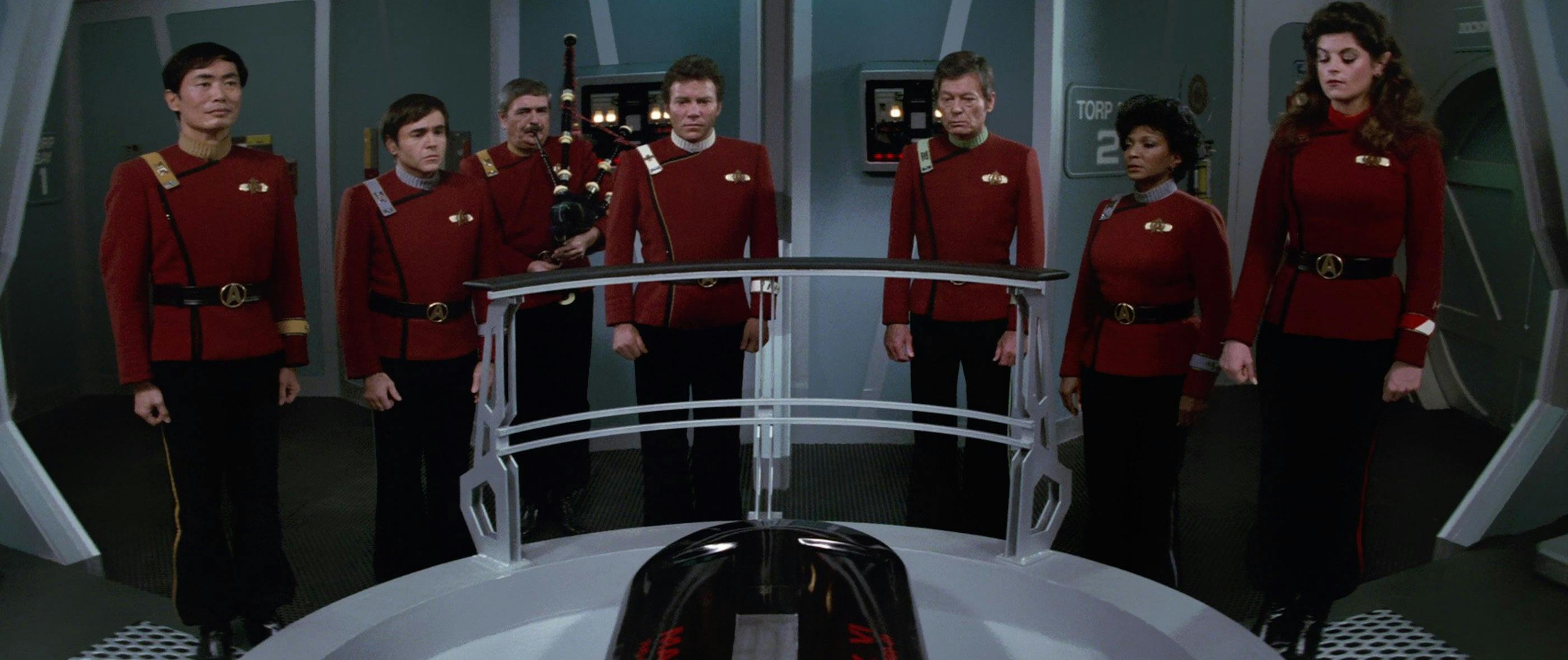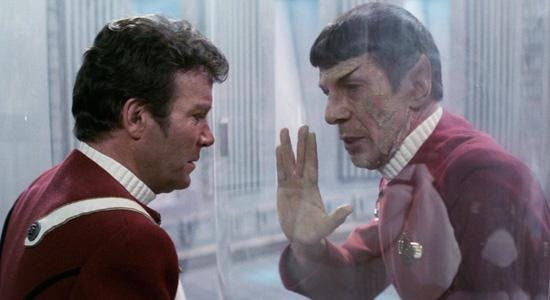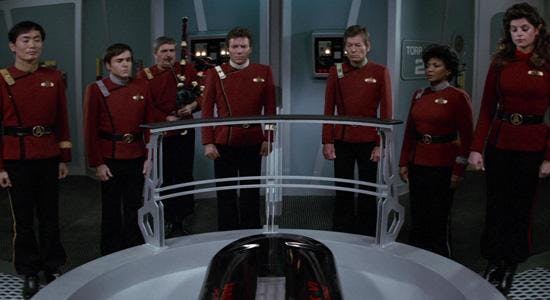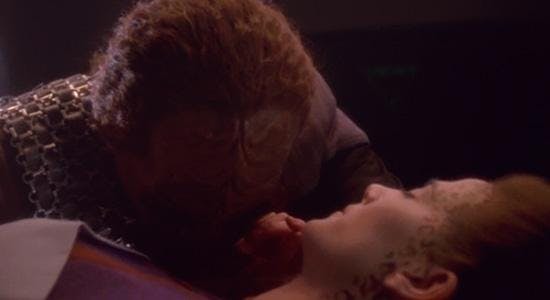
Star Trek, in many ways, is a celebration of life… its diversity, adventure and exploration. Two inescapable parts of life are loss and grief. Star Trek has explored these themes and delved the depths of this integral aspect of the human condition. What do we make of life’s finitude and what is the connection between our limitations and our quest for a life full of meaning?

Most famously, Star Trek explored what happens with the unexpected loss of a friend in the death of Spock at the conclusion of Star Trek II: The Wrath of Khan. Spock’s death was rooted in the friendship he had with his shipmates; those with whom he had grown and experienced the wonders of the galaxy. When faced with their impending destruction and the inability to gain a safe distance from the overloading Genesis device, Spock sacrificed himself to save those closest to him. The experience of his friends at losing him changes them. Most notably, their allegiances shift from duty to the ideals of Starfleet to the personal connection at the mere chance of saving their friend in Star Trek III: The Search for Spock. They risk their careers and their lives for the chance to recover what was lost. It is then fascinating to watch the characters adjust to Spock in Star Trek IV: The Voyage Home, when the friend they recovered is oddly foreign to them. The must grieve the loss of the old Spock and grow in acceptance of the new.

The Stoic philosopher Seneca, in the opening to his treatise on the shortness of life, writes: “Most human beings… complain about the meanness of nature, because we are born for a brief span of life, and because this spell of time that has been given to us rushes by so swiftly and rapidly that with very few exceptions life ceases for the rest of us just when we are getting ready for it.” Seneca argues that this perception is not entirely true. In fact, many of us have enough life, but we waste what life we have. We do not live to the fullest and so when it is lost, life appears short-changed. He writes, “It is not that we have a short time to live, but that we waste a lot of it.” While it cannot be said that Spock wasted much of his life, the sense that his life was cut short too early was felt acutely by Kirk, Bones, Uhura, Sulu and Chekov. They grieved not what was, but what could no longer be.

Loss and grief on Star Trek: Deep Space Nine were seen in the death of Jadzia Dax and Worf’s mourning in the aftermath. Despite having many lifetimes, we get a sense that Jadzia’s life had not reached completion. While both Worf and Dax lived with vigor, Worf’s sense of grief at his own reticence to show the affections he harbored for Jadzia and the commitment he had for her are palpably felt. Worf grieves not only what can no longer be, but what was not in the expression of his relationship with Dax. He initially responds by retreating further into his cloak of honor so as not to show his vulnerability. This is particularly true with his initial interactions with Ezri Dax, which are not filled with the opportunity of friendship, but rather the pain of loss.
Seneca argues that to gain tranquility, life must be lived authentically as one’s true self. He notes that we get caught up in trivialities, in the pursuit of material wealth, or in pursuing the next item that we think will give us pleasure. He speaks of the futility of seeking recognition from others, or being angry with others, when what is needed is equanimity. Time is a precious commodity that we must make the most of. We must explore the richness of life in connections with others and the pursuit of our truest self in order to have a full life that cannot be cut short regardless of its length. Time, in this sense, is more about quality than quantity.

Something of this Stoic insight is captured in the loss experienced by Dr. Hugh Culber and Lt. Paul Stamets in the first season of Star Trek: Discovery. The fullness of their life together is explored in the comparison of their professional and personal lives. This is particularly true of Stamets. He is curt with his colleagues and engrossed in his work. He is obsessed with accuracy, precision and scientific progress. This approach is juxtaposed with the sensitivity and tenderness exhibited toward his partner, Dr. Culber, whose profession is that of healer and caregiver. The authenticity and acceptance experienced in their shared life accentuate the sudden and violent loss of Culber, but also sooth the sense of loss that comes with grief.
When Stamets meets Culber in the mycelial network (or at least a mental projection of Culber), the Lieutenant does not want to leave. They share a lingering moment where Stamets listens to Kasseelian opera; a favorite of Culber’s, though despised by the engineer. This tenderness is a memory of the seemingly mundane – a quarrel over music – but is revealed as the material for life’s richness. Life is lived in the everyday and it is in the everyday that meaning arises. Here, loss brings about change, and when Stamets leaves the network he takes on Culber’s profession in a sense. He needs to heal the network in order to preserve life in the multiverse. It does not remove the sting of loss, but the profundity that is found in the vulnerability of sharing a life provides Stamets the equanimity to carry on and restore life – both his and others.
Timothy Harvie is Associate Professor of philosophy and ethics at St. Mary's University in Calgary, Canada. His interests lie primarily in philosophical theology, political philosophy, environmental and animal philosophies, and ideas of the role of hope in society. He is a lifelong Star Trek fan. http://www.stmu.ca/dr-timothy-harvie/

